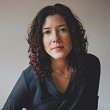
Maggie Messitt has a BA in journalism and a human rights interdisciplinary program from Boston College, an MFA from Goucher College, and is one dissertation defense away from a PhD in creative nonfiction at Ohio University. She is teaching a creative nonfiction class this semester.
How did you end up at Truman State University?
Since this is a unique position supported by the Ofstad Endowment, the English and linguistics department likely saw a combination in my work not often represented in creative nonfiction classes. My first book, The Rainy Season, is immersion and narrative journalism based in South Africa — where I lived for eight years — and the book I’m working on now is part memoir, part investigation, the story of my aunt who went missing in 2009. I suspect they also knew I would shake things up a bit in a traditional nonfiction workshop.
How did you end up in South Africa?
To make an extremely long story — that might be a book one day — short, I had an opportunity presented to me. It was my chance to work on the long form, narrative journalism I wanted to write and to focus on human rights issues. I started with the goal of developing a portfolio that authentically represented the writer I wanted to be, as opposed to a writer who was purely writing on assignment. I also ran a school, edited a newspaper and a magazine in a community with such an important and intense history, but had very little written about it. This is one thing that kept me there.
How would you describe your writing style?
I would describe most of my work as immersion and narrative journalism. Immersion describes the type of reportage and narrative describes the type of writing. The simplest way to think about it is as a documentary on paper — I’m behind the camera, observing for great lengths of time and slowly allowing a story to unfold. When I’m thinking about writing, I’m thinking cinematically, asking myself — how do we translate the emotion, the action and character development onto the page so it can be as vivid and engaging as when you were inside it.
What class are you teaching?
I’m teaching a creative nonfiction workshop and asking my students to do things that are deeply uncomfortable and make some of them nervous. I require them to leave campus to experience immersion reporting on their own. It’s important they try to understand what it’s like to hang out with people, to shut up and listen, absorb the dialogue around them, to think about place as character, and to learn how to take notes and think, ‘How do I go home and write a story about someone other than myself?’ In some ways, my class in about taking risks and being uncomfortable within safe spaces. Simultaneously, we’re working on one personal essay – slowly, throughout the semester, draft after draft. I’m also realizing this class is teaching them to write on a not so intense deadline. There’s no time to wait for inspiration; you have to sit down and figure it out.
Is this your first time teaching?
No. I’ve taught since 2002 in varying circumstances. When I was in South Africa, I ran a writing school for rural African women for five years. Since returning to the United States, I’ve taught within the Writers in Prisons Project in Wisconsin, for alternative writing programs like Creative Nonfiction and Lighthouse Writers Workshops, and at the university-level at Ohio University, Elizabethtown College and now here. My experience is a blend of traditional and non-traditional which is really what I love.
How have you liked Kirksville so far?
I love living in the city, but I have strong affection for small towns. When I was in South Africa, I lived in the middle of nowhere, so Kirksville seems really big compared to my home there. If you look at my Instagram account, I am slowly falling in love with Kirksville sunsets, hidden artwork around town and the small, unexpected moments I encounter on my long walks everyday. But, most importantly, people are genuinely kind — that’s been a breath of fresh air.
How long is your stay at Truman?
I am here until Oct. 12. I have a reading on Sept. 21, and I am all over campus every day in a couple secret spots in the library and elsewhere working on this book. Truman has really given me the gift of time to step away from my everyday life and focus exclusively on teaching and writing.
What projects are you currently working on?
The book I’m working on right now is one of things I tried not to write, but it just kept writing itself into every other thing I was working on. So I had to say, “Okay, I have to work on this in order to ever move past it.” It’s deeply personal and may just be the hardest thing I ever write.
Do you have any advice for writers?
I think people assume someone inside a classroom is truly going to train them to do everything they need to know, but they’re not. You have to figure out what you want to do and then you have to play with it and be willing to take risks, experiment and recognize it’s not going to be perfect. It may never be perfect. It’s a commitment to doing something better with each try, learning from each attempt and being thoughtful in your process.
This article appeared in the Sept. 22 issue of the Index.
